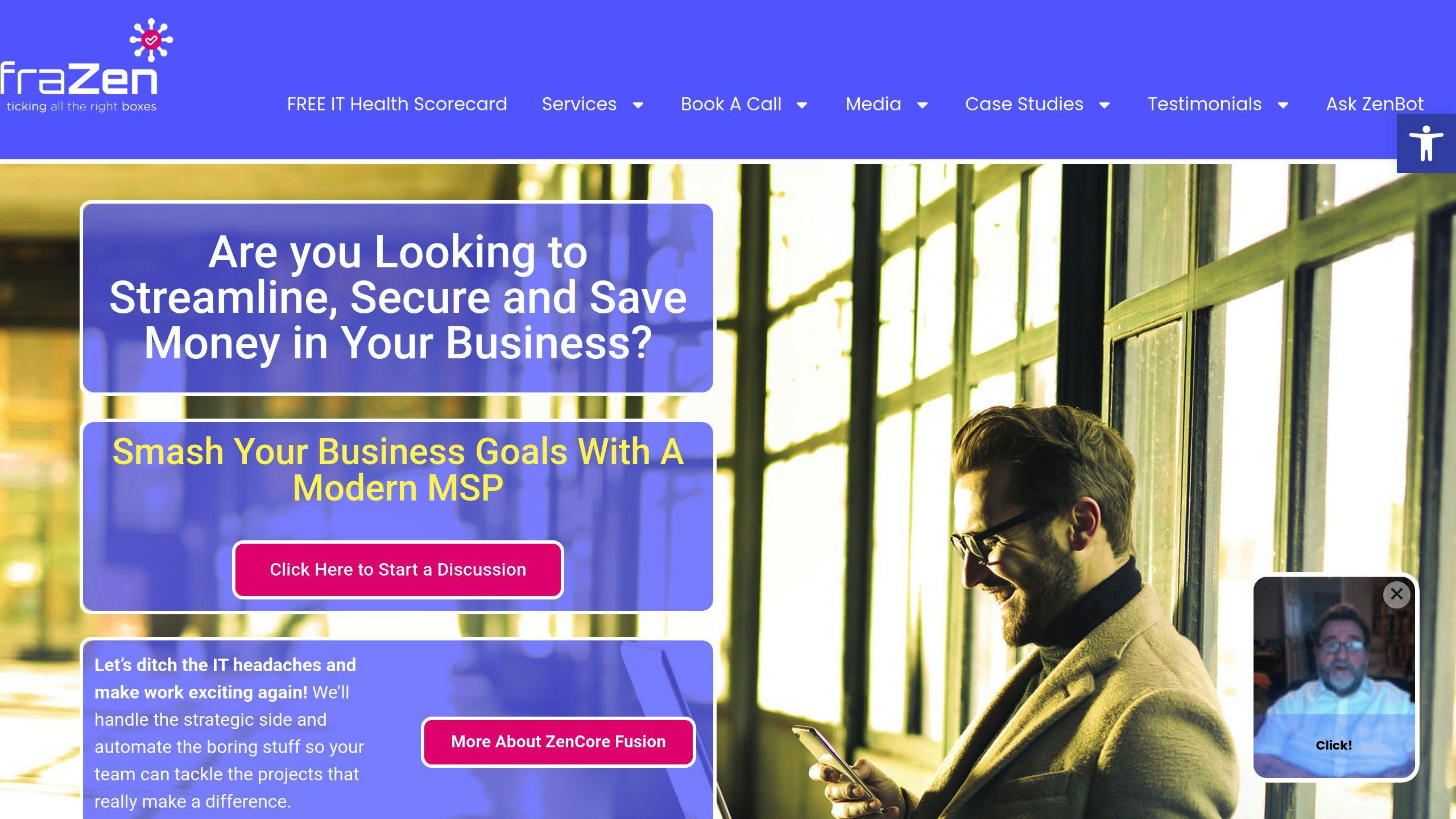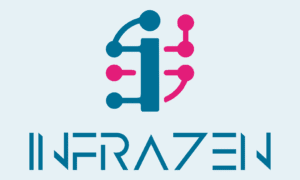Want to save time and boost your revenue? Creative businesses lose hours to inefficiencies like manual tasks, multitasking, and outdated workflows. Time is money, but with the right tools and strategies, you can reclaim those hours and turn them into profit.
Here’s how you can start:
- Use Project Management Tools: Platforms like Asana, Trello, and Paymo streamline workflows, automate tasks, and improve deadline management.
- Adopt Managed IT Services: Ensure reliable tech systems, protect creative assets, and minimize downtime.
- Leverage Automation: Automate repetitive tasks like client communication, invoicing, and file management to save hundreds of hours annually.
Quick Wins:
- Businesses using project management tools reduce project failure rates by 25%.
- Automation can save up to 2,000 hours per employee per year.
- Managed IT services cut tech disruptions by 40%, freeing up time for creative work.
Take action today: Start with small changes like automating routine tasks or integrating project management tools. These steps can help you save time, take on more projects, and grow your revenue.
Time Management for Creative Entrepreneurs: Using Automation & Systems to Find More Time to Create
Improving Workflows with Project Management Tools
Project management tools play a key role in helping creative businesses save time and cut down on inefficiencies. According to the Project Management Institute, organizations using these tools experience a 25% drop in project failure rates [2].
Best Project Management Tools for Businesses
Different project management platforms cater to various needs within creative workflows. For instance:
- Asana: Offers workflow customization and automation, making it ideal for larger teams.
- Trello: Features visual boards that work well for small to medium-sized teams.
- Paymo: Combines time tracking and billing, perfect for freelancers and agencies.
| Tool | Key Strength | Best For |
|---|---|---|
| Asana | Workflow customization | Large creative teams |
| Trello | Visual organization | Small to medium teams |
| Paymo | Time tracking & billing | Freelancers & agencies |
Features and Benefits
A Wrike survey found that 94% of businesses improved their ability to meet deadlines after adopting project management tools [2]. By reducing missed deadlines and streamlining task delegation, these tools enable businesses to take on more projects, boosting profitability. Here are some standout features:
- Task Automation: Tools like Asana’s workflow builder automate reminders and task assignments, cutting down on manual follow-ups by automatically assigning tasks to the next team lead.
- Real-Time Collaboration: Shared boards and integrated communication features reduce unnecessary meetings. Teams can exchange feedback, share files, and track progress seamlessly, all within the platform.
- Time Tracking Integration: Solutions like Paymo combine project management with time tracking, providing accurate insights into resource use and project profitability.
“Effective project management is crucial for creative businesses to optimize their workflows and maximize profitability. Tools like Asana and Trello are recommended for their ability to streamline operations, reduce inefficiencies, and support business growth.” [4]
Pairing tools like Trello with Slack or Asana with Google Drive further enhances their utility. While these platforms improve collaboration and task management, managed IT services ensure the technical infrastructure runs smoothly, keeping creative businesses operating without a hitch.
Managed IT Services and Business Efficiency
For businesses in creative industries, managed IT services offer a way to save time and increase revenue by improving how operations run. Research from CompTIA shows that 64% of businesses use managed IT services to enhance both efficiency and security [6]. This allows creative teams to concentrate on their expertise while ensuring their tech systems remain reliable.
Managed IT services significantly impact three key areas for creative businesses:
| Area | Business Impact |
|---|---|
| Proactive Monitoring | Keeps design software and creative tools running with 99.9% uptime |
| Cybersecurity | Safeguards intellectual property and creative assets |
| System Optimization | Ensures top performance for resource-heavy applications |
“Managed services can help businesses comply with regulatory requirements and improve data protection while maintaining focus on their core creative work” [5].
Why Managed IT Services Matter
Creative professionals gain several advantages from managed IT services, including:
- Continuous access to essential design software and collaboration tools
- Protection of intellectual property and sensitive client data
- Quick fixes for technical issues that might delay important projects
“Outsourcing IT tasks reduces costs and boosts efficiency”, explains Todd Thibodeaux, CEO of CompTIA [3].
InfraZen: A Managed Services Example

InfraZen shows how managed IT services can transform creative business workflows by offering:
- AI-powered monitoring and proactive IT support to prevent disruptions
- Tailored IT resource management to align with business goals
- Enhanced performance and usability of creative software
These services allow creative teams to stay productive while reducing the burden of managing technical systems. With a well-tuned IT setup, businesses can also adopt automation tools to save even more time and resources.
sbb-itb-70a39e2
Using Automation to Save Time
Automation can help businesses reclaim up to 2,000 work hours per employee each year, allowing teams to focus on tasks that drive growth and revenue [6]. Similar to how managed IT services improve infrastructure, automation tools handle repetitive work, giving creative teams more time to innovate.
Automating Routine Tasks
Automation tools simplify day-to-day operations. Here’s a breakdown of how they can save time:
| Task Type | Automation Tool | Time Saved Per Month |
|---|---|---|
| Client Communication | Zapier + CRM | 15–20 hours |
| File Management | Dropbox Automation | 8–10 hours |
| Invoice Processing | Automate.io + Accounting Software | 12–15 hours |
| Social Media | Buffer + Zapier | 25–30 hours |
Research from Smartsheet shows that 60% of businesses using automation saw higher productivity, and 45% experienced fewer workflow errors [2].
Combining Automation with Existing Tools
For automation to work effectively, it needs to integrate smoothly with your current tools. Start by mapping out tool connections, identifying repetitive tasks, and rolling out automation gradually.
Focus on automating tasks that:
- Involve manual data entry or transfers
- Follow consistent, predictable patterns
- Require precision and repetition
- Span multiple systems or platforms
“Automation enhances human capabilities rather than replacing them”, says Andrew Ng, AI Pioneer [7].
Examples of Success
Case Studies of Time and Revenue Improvement
XYZ Design Studio revamped their workflow by integrating Trello with Slack. This setup led to a 30% increase in productivity and a 25% boost in revenue within just six months. By automating task assignments and improving client communication, they were able to take on more profitable projects.
DEF Media Productions overcame frequent software crashes and downtime by adopting managed IT services. This reduced technical disruptions by 40%, freeing up 12 hours per week that the creative team previously spent troubleshooting. Those hours were redirected toward delivering client projects.
| Company | Solution Implemented | Results |
|---|---|---|
| XYZ Design Studio | Trello + Slack Integration | 30% productivity increase, 25% revenue growth |
| DEF Media Productions | Managed IT Services | 40% fewer technical issues, 12 hours saved weekly |
| GHI Creative Agency | Email Marketing Automation | 35% better client response rates, more project inquiries |
GHI Creative Agency saw major benefits from email marketing automation, which improved client response rates by 35%. This led to more project inquiries and better engagement, directly impacting their revenue.
Insights and Actionable Steps
Here’s how you can achieve similar outcomes:
- Set Clear Goals: Identify the tasks that waste the most time in your workflow. For example, GHI Creative Agency pinpointed email management as their biggest challenge before introducing automation.
- Test and Refine: Gradually implement changes and track key metrics to find what works. XYZ Design Studio monitored project completion times and client satisfaction to fine-tune their system.
Studies show that 70% of businesses using managed IT services report fewer disruptions and better efficiency. For creative teams, this means more billable hours and higher revenue potential.
These examples highlight how creative businesses can save time, improve operations, and position themselves for growth.
Conclusion: Starting the Journey to Efficiency
Case studies show how even small adjustments can save time and boost revenue. Recent data reveals that 84% of teams plan to invest in tools that streamline tasks, highlighting their growing importance for staying competitive in 2025.
Efficiency often begins with minor tweaks. For example, setting aside specific times to handle emails can free up hours otherwise lost to constant interruptions. Research indicates that 80% of knowledge workers keep communication apps open all day, which significantly hampers productivity [1].
Boosting efficiency pays off. Companies using AI tools report a 20% increase in productivity, allowing creative teams to tackle more projects and drive revenue growth.
Here’s a straightforward framework to kickstart efficiency improvements:
| Time Frame | Action | Expected Outcome |
|---|---|---|
| First 2 Weeks | Review current workflows | Pinpoint the top 3 time-draining tasks |
| Within 30 Days | Introduce one automation tool | Save 5–10 hours weekly |
| Quarter 1 | Adopt managed IT services | Cut tech interruptions by 40% |
These quick wins deliver immediate benefits while setting the stage for long-term success. By acting now, creative businesses can maximize their potential and thrive in a competitive market.

